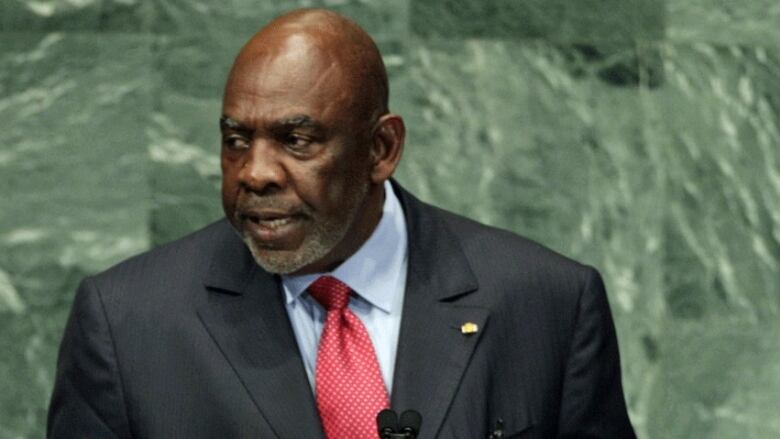Mali PM steps down after arrest by junta
Civilian leader had begun to show signs of resisting coup

Mali's prime minister presented his resignation on state television in a broadcast at 4 a.m. local time on Tuesday, hours after soldiers who led a recent coup burst into his home and arrested him, in the latest sign of the volatile political situation in this once-stable nation in West Africa.
Prime Minister Cheikh Modibo Diarra appeared on TV in a dark suit, his forehead glistening with sweat, his expression sombre.
Diarra addressed the nation, saying: "Our country is living through a period of crisis. Men and women who are worried about the future of our nation are hoping for peace. It's for this reason that I, Cheikh Modibo Diarra, am resigning along with my entire government on this day, Tuesday, Dec. 11, 2012. I apologize before the entire population of Mali."
A police officer and an intelligence official who spoke on condition of anonymity because they were not authorized to speak to the press confirmed that the 60-year-old Diarra had been arrested at his private residence at around 10 p.m. Monday by soldiers loyal to Capt. Amadou Haya Sanogo, the leader of the country's recent coup.
Waspreparing to fly to Paris
Diarra was getting ready to leave the country for Paris and the plane that was due to take him was already taxiing at the airport. It's unclear if the trip to France was planned, or if Diarra had gotten wind of the pending arrest and was trying to flee.
The security officials said the prime minister was forced into a car and driven to the Kati military camp, the sprawling military base where the March 21 coup was launched under the orders of Sanogo. For several weeks, tension has been mounting between the officers who led the coup and Diarra, the civilian prime minister they were forced to appoint when they handed back power to a transitional government.
The police officer, who was on duty Monday night at Bamako's international airport, said the plane that was to take the prime minister to France was stopped by members of the group Yerewoloton who had invaded the airport and were searching cars.
Yerewoloton is a violent citizen's movement, which is believed to be backed by the junta. In May, they broke through the security cordon at the presidential palace. Once inside, they beat up the newly appointed interim president, 70-year-old Dioncounda Traore. The beating of Traore brought immediate international condemnation and it was after the May 21 incident that coup leader Sanogo was forced to retreat from public life. He has kept a low profile in recent months, emerging only occasionally to criticize a military plan by the nations neighbouring Mali, which want to send 3,300 troops to take back Mali's north from armed Islamist groups.
Diarra, an astrophysicist who previously led one of NASA's Mars exploration programs, was initially seen as in step with Sanogo. Critics lambasted him for frequently driving to the Kati barracks to see the coup leader, apparently to seek his advice long after Sanogo was supposed to have handed power to civilians. In recent weeks though, Diarra has appeared to be taking stances that sometimes conflict with Sanogo.
Demonstration to reclaim north
Last weekend for example, Diarra helped organized a demonstration calling for a United Nations-backed military intervention to take back Mali's north, which fell to Islamic extremists in the chaos following the coup.
On Monday at the United Nations, France circulated a UN Security Council resolution that would authorize the deployment of an African-led force to oust al-Qaeda-linked militants who seized Mali's northern half. The United States, however, wants the troops to be trained first for desert warfare, UN diplomats said.
Experts on Mali have voiced skepticism over the military intervention, specifically because the plan initially put forward by the African Union gives a central role to the Malian military, which is still in the hands of Sanogo. African diplomats who were involved in the negotiations with Sanogo earlier this year, leading to the creation of Diarra's transitional government, say the coup leader does not want foreign forces on Malian soil because it would dilute his power.
Junta officials could not immediately be reached for comment in the early hours of Tuesday. Diarra's demeanour, including his strained expression and the background against which he made the declaration, all suggest that the prime minister resigned under duress, and possibly made the declaration at the military barracks, rather than at the professional studios of the ORTM, the state broadcaster. The backdrop against which he spoke looked like a bare wall.












_(720p).jpg)


 OFFICIAL HD MUSIC VIDEO.jpg)
.jpg)



























































































